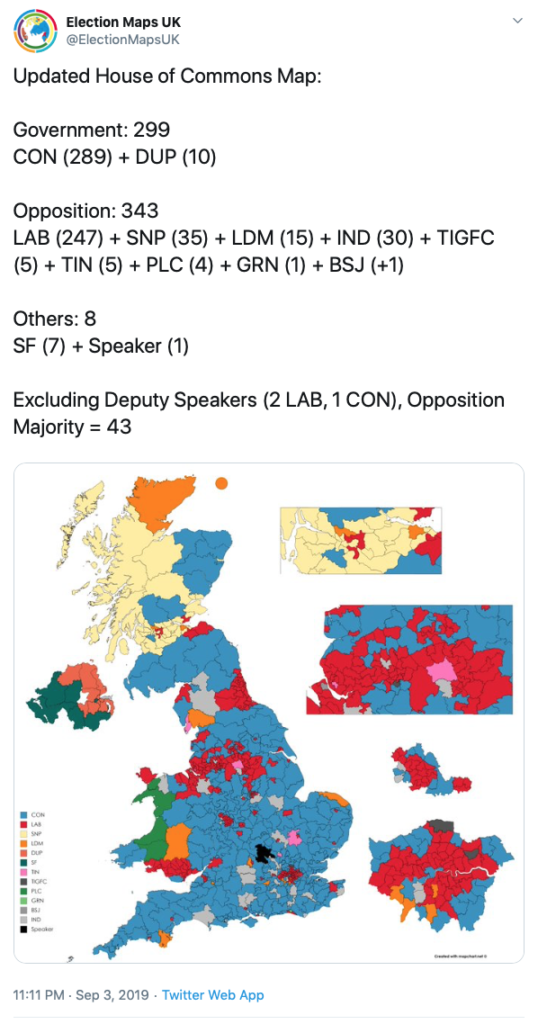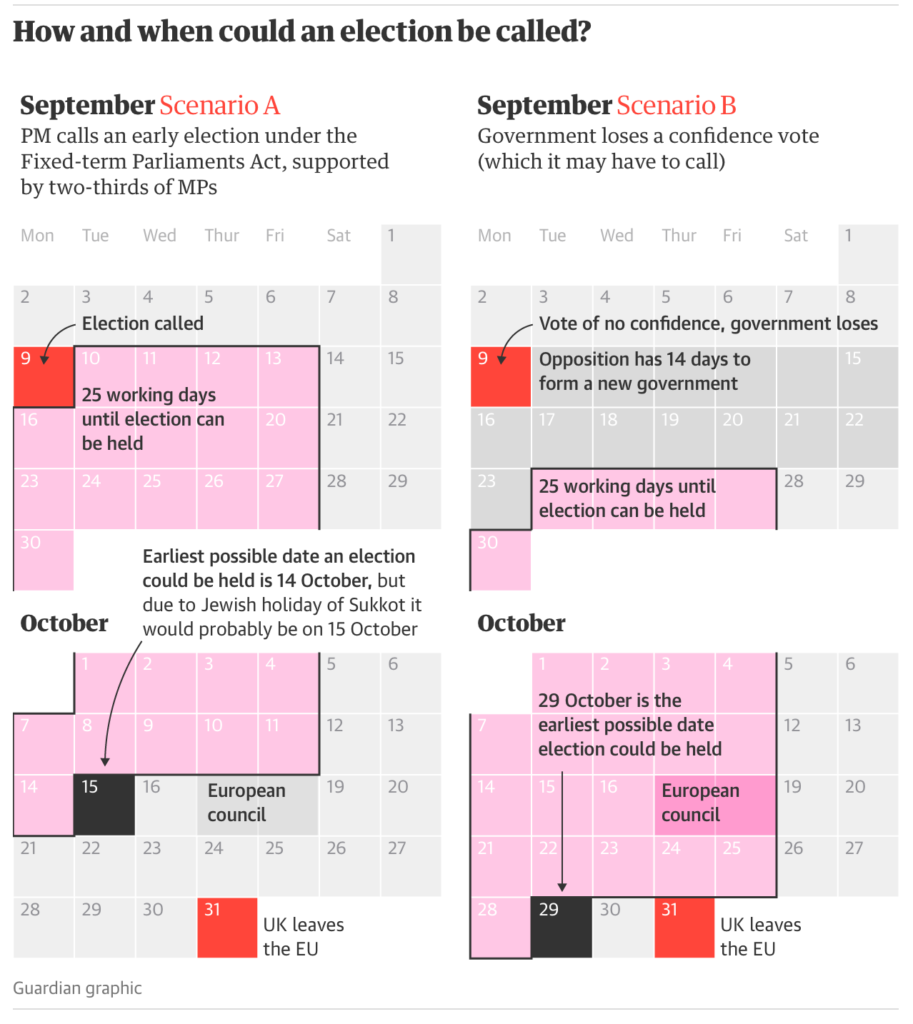British Politics and the Brothers of Betrayal

A bit more than 48 hours ago, I posted an update on the parliamentary dysfunction of British politics and . . . it only got messier in that time.
As predicted, with two bills, one seizing control of the parliamentary calendar from the Government, and the second, a move to effectively block the crashing out of the EU without any deal on the date of the current deadline (31 October) passed the House of Commons, the second 327-299. A weird little amendment slipped through via strange means that has brought Theresa May’s thrice-defeated deal back on the table:
The Benn Bill was amended by Stephen Kinnock after the government – intentionally, it would seem – did not put up tellers for the ‘Noes’, which meant no division was called and the proposed change passed by default.
If approved, the bill would now force the Prime Minister to state in a letter to the EU that debating and passing Theresa May’s Withdrawal Agreement Bill is the purpose of requesting a delay.
A third motion last night, to call an early election under the Fixed Term Parliament Act, failed. The latter will come up again, so more on that in a paragraph or two.
Boris Johnson’s reaction to losing the first vote was swift: he removed the whip from the 21 Conservative MPs who rebelled, thus effectively rendering them without a political party for the purposes of parliament (though they technically remain members of the Conservative Party). Several big names are on this list, including Ken Clarke, who served in both the Thatcher and Major governments, and Philip Hammond, who was Chancellor of the Exchequer under Theresa May. In addition to creating a large new block of independent MPs to add to the growing contingent of independents in Parliament, he also effectively eliminated any chance of a working majority for the life of the existing parliament:

(Plymouth Sutton & Devonport, incidentally, is the furthest south west bit of red on that map, surrounded by a sea of Conservative blue).
Earlier, on Tuesday, the Conservative MP Phillip Lee rather dramatically walked across the chamber and sat with the Liberal Democrats, signifying his defection to the Lib Dems, while Johnson was speaking.
That brings us to . . . this morning, I think. Today, Luciana Berger, MP for Liverpool Wavertree, switched from “The Independents” to the Liberal Democrats. She was Labour until 18 February, when seven Labour MPs left to form Change UK. (There’s a lot to the Berger story, and she was, in part, hounded out of the Labour Party due to the vile and virulent anti-semitism now prevalent in pockets of the hard left in the party; she is a huge loss to Labour and a big gain for the Liberal Democrats).
And, just a bit over three hours ago, Jo Johnson, brother of the Prime Minister, and a minister in the government, quit both his government role and resigned as MP, in the tweet at the top. It’s been quipped that Jo Johnson is “the first politician to resign to spend less time with his family”. One side benefit of this is that the Johnsons will now be the first set of brothers thought about when betrayal in British politics is brought up, and no longer the Milibands. (Incidentally, while my politics are to the left of Ed’s, which makes them light years to the left of David’s, had David Miliband won that leadership election in 2010, the Labour Party, and probably the United Kingdom, would be a very different place right now).
So, that’s sort of where things stand. Since parliament reconvened on Tuesday, Johnson has seen his majority erode from a solid 1 to -44 (including the ten DUP MPs). He’s lost every single vote (I believe) that he has put on the table, including the calling of an early election. He’s going to try to do that again today, it appears, and it’s clearly in his interests to do so. However, as of last night, it appears that Corbyn and his leadership (bar Seamus Milne, who is still periodically briefing the press as to what he wants to see happen) held their nerve. Not only should Labour decline a general election before the bill blocking a no-deal Brexit becomes law with Royal Assent, Labour should let Johnson stew in his own juices for a while. It’s clear he isn’t very good at this entire Prime Minister gig, he crashed and burned during PMQs yesterday, and both have had the side effect of making Corbyn appear to not be completely shit in comparison. Labour need to keep this going and allow it to filter out into the general population before an election is called.
There are two additional routes to an early election, both of which have been mooted in the past couple of days. One is under the Vote of No Confidence provision of the FTPA2011 (Scenario B below), which only requires a simple majority. But, it has a built in two-week period where a different government can attempt to gain the confidence of the house, and thar be dragons aplenty. The second is to simply scrap the FTPA, which would also require only a simple majority, but it would take even more time (I think) than a VONC.

Here’s an additional reason why Labour should reject the sparkly attraction of a snap election in the next few weeks, and this hasn’t really been discussed much. Assuming everything goes according to plan, and the Benn bill is granted Royal Assent and becomes law, it still doesn’t definitively stop a no-deal Brexit. If there’s an election, and Johnson wins an outright majority (which as things stand right now, I believe is as likely as a hung parliament with the Tories the largest single party) his first act in the new parliament will be to scrap the Benn law.
While there isn’t much agreement about anything in the British constitutional system, what is readily agreed upon is that a future parliament is not beholden to the acts of past parliaments. In other words, Johnson wins an election? It will be a no-deal Brexit.


